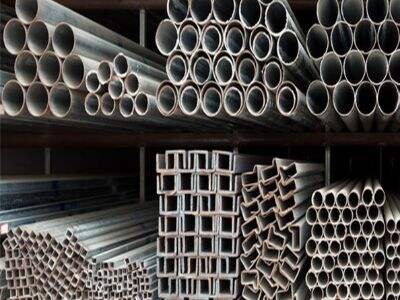If you have a project with metal pipes, it is imperative to choose the right Pipe Tube for what you need. There is a wide variety of metals to choose from, available in many different shapes, sizes and thicknesses. It may seem a bit tiring at first, but you don’t have to worry. That said, with some support from Jinzheng, we can gradually build everything down in a way that you can comprehend and make the right decision.
Metal Review: Is Stainless Steel Right for Your Project?
Stainless steel is one of the most common metals for many people that they use for their industrial projects. This is due to the fact that it is tough, long-lasting and does not corrode or become ruined easily. Stainless steel can be found from construction sites to car manufacturing to kitchens for sinks and appliances. That said, stainless steel is not necessarily the right choice for every project. Depending on your needs, other metals, such as carbon steel or copper, may be more effective solutions. Some materials, such as carbon steel, are great for heavy-duty jobs, while copper is great for plumbing because it conducts heat well. The Jinzheng experts can help you determine which metal works best for your project, depending on what you will be doing with your project and where it will be placed.
How To Select The Appropriate Thickness for Your Metal Pipe
A metal pipe is defined by its thickness or gauge. The gauge tells you the thickness of the pipe, and it operates in a fashion that might not be what you expect. Thicker pipes will have a smaller gauge number. A 10 pipe gauge is thicker than 20 one gauge. The type of project/gauge you select will depend on how much pressure and weight will be placed on your project. If you choose a too pipe thin, it could bend or fracture due to the weight. If you go for a too thick metal pipe, it may even become heavy and cumbersome. Jinzheng’s specialists are available to educate you on what gauge is appropriate for your application, thereby avoiding difficulties down the road. Keeping in mind your requirements of the project, they will ensure everything works in place.
Metal Pipes: All Shapes and Sizes Explained
Different types of metal pipes: and why you need each typeIf the general shapes were discussed above, we would be discussing different types of metal pipes एक them, the metal pipes come in many different types, and each shape is useful for different types of projects. This includes round, square, and rectangular pipe. When round pipes are used, it is most often in plumbing and construction projects where the ease of installation and lack of potentially dangerous sharp corners is useful. They’re compact and very strong, and easily adapt to a tight spot. Square and rectangular pipes are commonly used in building architecture and furniture as it appears more of a modern and sleek design. This means that you will have to look at the size of the pipe, both its diameter and thickness, and decide what size it needs to be for your project to work. Size — This will depend on what you are building and how much weight it has to hold.
Should I Use Welded or Seamless Pipes?
There are welded pipes and seamless pipes in metal pipes. This is a big decision. Welded pipes are produced by welding two pieces of metal together. Good, this process can be less effective, which can save you money. Welded pipes are sometimes weaker and may be more ot to break or crack under stress. Seamless pipes, on the other hand, are manufactured from a single piece of metal, so there are no seams where the metal is joined together, making it possible that these parts of the pipes could be weak. They are stronger and more durable, but may also be pricier. Jinzheng experts can make you understand what are the pros and cons for each type of pipe and help you decide which one would best suit your project requirements.
Metal Pipes: Why Material Test Reports Matter
Material test reports (MTRs) are vital when you pick a metal pipe. These reports facilitate insights when it comes to the quality and performance of the metal pipe. They tell you the composition of the metal, its strength and whether it meets industry standards. MTRs are vital to having, too, as they can also warn you of any problems, such as rust, corrosion or weakness, in the pipe. This makes sure that you are choosing a safe pipe and trusted for the leaving project. From pipe to plates, whenever you purchase any good through Jinzheng, you also receive Material Test Reports (MTR) with your materials, another satisfaction, assuring that what you're going to purchase is good.

 EN
EN








































